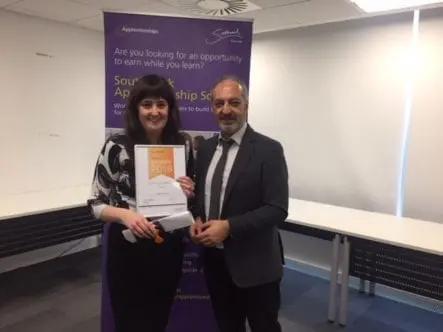Capital City College Training apprentices won two awards at this year’s Southwark Council Apprenticeship awards.

In a night of celebration to coincide with National Apprenticeship Week 2018, Claire Beswick was given the ‘Highly Commended’ award in the ‘Best Contribution by a New Apprentice’ category. Another of our apprentices won the overall prize for that same category.
Claire completed a Business Administration Level 3 apprenticeship and won the award based on her work ethic during the course.
Raj Kakaiya, Deputy Managing Director at Capital City College Training said: “I am incredibly proud of the achievement of these apprentices and our partnership with Southwark Council who continually champion the contribution of the apprenticeship schemes that Capital City College Training support them with.
“Apprenticeships play a vital role in recruiting new talent for employers in London and are also a great way to develop the skills of existing employees within organisations. Capital City College Training is part of London’s largest FE college group and works with hundreds of employers, large and small, to take recruit and retrain through the apprenticeships route.”



